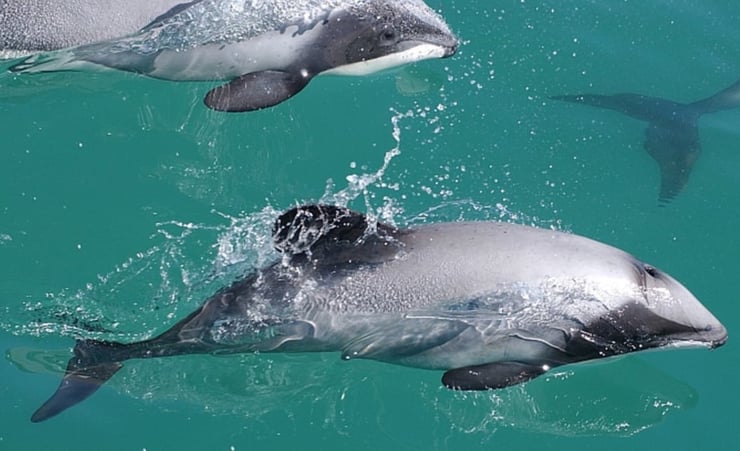US court ban on NZ fish exports receives mixed reaction

A United States court has ordered an immediate ban on New Zealand exports of several species of fish which have been caught in the Maui dolphin habitat along the West Coast of the North Island to help protect the critically endangered species.
The injunction handed down by the United States Court of International Trade applies to nine species from the West Coast North Island inshore trawl and set net fisheries, including snapper, tarakihi and spotted dogfish. The ban is on exports from the inshore trawl fishery and inshore gillnet fishery off the west coast of the North Island.
This development came after the non-profit marine wildlife conservation organisation Sea Shepherd NZ filed legal proceedings in the court in Manhattan to ban the trade to protect endangered Maui dolphin habitats under the Marine Mammal Protection Act.
The ban will remain in place until the US finds NZ's fishery regulations are comparable with American standards or until the court case is resolved.
Indian Weekender spoke to different organisations to know their take on this development and how it would impact the NZ fisheries industry.
James Brown, Manager International Fisheries Management, Ministry for Primary Industries (MPI)
“We are working through the decision, but understand there will be a hearing next month to hear further arguments.
"The US government is the defendant in the matter, and NZ will provide information and support where required.
"New Zealand has put in place comprehensive measures to protect Maui dolphins based on the best available scientific information and extensive consultation with New Zealanders.
"In the meantime, we will work with exporters to identify and divert potentially affected products.
“Because of the extensive restrictions NZ has already put in place to protect Maui dolphins, particularly on the West Coast of the North Island, we anticipate the temporary stop to trade will affect a relatively small portion of overall fisheries trade to the United States – less than $2 million per year.”
Michael Lawry, Managing Director, Sea Shepherd New Zealand
“This is not just a win for Maui and the marine mammals of Aotearoa. It is also a win for independent science.
"Maui is the rarest marine dolphin in the world, and they deserve our care and protection. Industrial trawling in their habitat shouldn't be an option."
Dr Jeremy Helson, Chief Executive, Seafood NZ
“While this is concerning, it is a procedural matter related to the expiry date of the existing National Oceanic and Atmospheric Administration (NOAA) advice on the risk to the dolphins and has no bearing on anything substantive in the case brought against the export of fish from NZ’s Maui dolphin habitat into the US by Sea Shepherd NZ et al. Any assertion that this ruling in any way is a criticism of the Ministry for Primary Industries risk management decisions around Maui dolphins is not reflected in the court documents. The court has yet to issue its ruling on the substantive issues of the case.
“NZ fishing has been excluded from Maui dolphin territory, fishing methods have been banned, and monitoring by cameras is on most vessels operating in this area. The review of the camera monitoring of some 4,000 trawl events over the past two years has seen no Maui or Hector's dolphins at all, let alone any captures. No Maui dolphin has died due to commercial fishing since 2003, and toxoplasmosis, not fishing, has been named by the Department of Conservation as a significant threat to this species.
Any impact on fish exports to the US with this ruling is yet to be assessed."
Ellie Hooper, Greenpeace Aotearoa oceans campaigner
"After years of recklessly endangering a rare indigenous dolphin, the NZ fishing industry will pay the price.
"This win by Sea Shepherd is damning for NZ's fishing industry and an indictment on the NZ government for not taking more decisive action to protect the Maui dolphin.
"We need to see more action by the Labour government to curtail the harm done by the fishing industry, from pushing Maui dolphins to extinction to destroying ancient coral habitats on seamounts with bottom trawling nets.
"The ban could cost NZ's fishing industry up to $200m, but it's nothing compared to the price paid by this tiny dolphin species found only in Aotearoa and the reputational damage that may be done to NZ".






